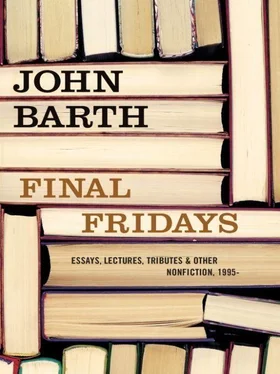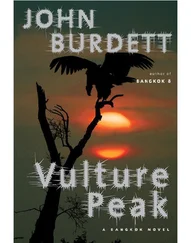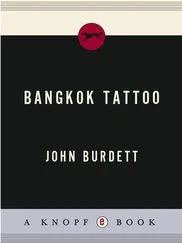— LANGFORD CREEK, MARYLAND: FRIDAY, MAY 29, 2009
I. ON READING, WRITING, AND THE STATE OF THE ART
An extended reflection on Getting Older, first published in The New York Times Magazine for a 1997 issue on “The Age Boom,” when its author was a mere and still-frisky 67-year old….
AMBIVALENT RITE OF authorial passage! Just the day before yesterday, one was gratified to be listed among the Literary Upstarts to Keep an Eye On; today one’s sentiments are solicited under the aspect of Storyteller Emeritus, Still-Functioning Codger Novelist, Superannuated Scheherazade.
Well, it happens. In the foreshortened busy interval between that Day Before Yesterday and this Today, one’s fortune has been neither to autodestruct nor to be by the world destroyed; to sire and raise a family, among other adventures; and with the muse’s connivance to perpetrate some 5,000 pages worth of fiction 1—this while one’s life (which is not a story) exfoliated in accordance with its own, imperfectly comprehended principles. Like one’s biological children, those book-bound pages, once launched and independent, have made their way as chance and their merits would have it: praised here, trashed there, attended and ignored, but somehow (knock on wood) surviving, persisting, even modestly thriving unto the present hour, their expiration-dates bidding fitly to extend beyond that of their author. “What a long, strange road it’s been!” used to exclaim the Grateful Dead’s (late) Jerry Garcia. Even for the least programmatically colorful of us, quite so. I could tell you a story….
But one’s calling is invention, not confession, and the subject in hand is neither Yesterday nor the Day Before, but Tomorrow, as seen from the presumable vantage-point of a fairly high-mileage Today.
Tomorrow and tomorrow: On average and on paper, one has more of those in prospect these days than folks did formerly. At age 67, Yours Truly is on the one hand 95 percent through the “biblical” threescore-and-ten, while only 56 percent through the 120-year span alloted us mortals in Genesis 6:3 and reneged on ever since, but latterly affirmed by some gerontologists to be the inherent design-life of Homo sapiens sapiens . More probably — after jiggering my American generation’s actuarial averages upward for my skin color, downward for my gender, and upward thrice again for (knock on wood) my rude good health, the longevity of my parents, and a blessed remarriage — I can with luck anticipate perhaps 20 more years of breathing air, with most of my faculties more or less though ever less and less intact through much of that period, and always allowing for the circumstance that the world might end (one’s own world, anyhow) before this sentence does, or the one to follow.
20 years more: That many? That few? One feels a proper twinge of that echt -20th-century emotion, Survivor’s Guilt: Donald Barthelme, Italo Calvino, Raymond Carver — splendid writers cut off in the full fruition of their gifts at a younger age than one’s present, their voices stilled for keeps while one’s own yarns on. One recalls John Keats’s famous fears (well justified, in the event) that he might cease to be before his pen had gleaned his teeming brain; likewise the writerly counterfears (let’s not name names) that one might go on being and being and being after one’s pen, et cetera, silenced not by death or devastation but by mere bare-cupboardhood. One takes courage from the exemplary counter-instances, e.g., of Arthur Miller, just past 80 and evidently going strong 2; of even-older-at-the-time Thomas Mann, bringing off as his final novel the high-spirited elaboration of his early short story Felix Krull —a stunt about which I could write a whole praising page but won’t, here; of even-older-yet Sophocles, closing out at age 90 his Theban trilogy with the magnificent Oedipus at Colonus .
And having thus twinged, thus recalled, and thus taken courage, one draws yet another deep bonus breath — refills one’s trusty fountain pen, boots up one’s trusty word processor, whatever — and like the afore-invoked Scheherazade (perhaps for not-dissimilar reasons) deftly segues into the one about. .
Et cetera.
When this essay was first-drafted back in 1994 (too late for inclusion in the Further Fridays collection), subsequently delivered at the Woodrow Wilson Center in Washington, D.C., as part of their lecture series “Novelists on Literature,” and first published in the Wilson Quarterly , 1; “electronic literature”—fiction to be read and in many cases interacted with on a computer — was still a novelty. 15 years later, as I pen this head-note, it remains, if no longer a novelty, still an oddity, enjoyed by a comparitively small audience. My interest in it back then was mainly dutiful: a checking out of the edges of my medium’s envelope for my fiction-writing coachees’ benefit and my possible own: I even agreed to be listed on the advisory board of the newly-formed Electronic Literature Organization (ELO), just to stay abreast of things. Some of its members’ productions I’ve found impressive, literarily as well as technically. I remain, however, a book-person, for whom the computer is a workshop-tool: useful indeed for revising, editing, and printing out my fountain-penned first drafts, for sending and receiving e-mail, and occasionally for Googling some item on the Web (my wife, the house WebMeister, uses its vast resources for everything from trip-planning to recipe-checking), but not a source of sedentary entertainment or aesthetic engagement. For those, in our leisure hours, we turn to music (mostly on CDs, although I still enjoy playing Renaissance and Baroque recorder-duets now that my jazz-drumming decades are behind me), to a nightcap hour of television (mostly movies on DVD rather than network or cable shows) — and above all to the printed, usually book-bound, page, long may it endure: not “virtual reality,” but deliciously virtual virtuality (see below).
THE ART WHOSE state I mean to review here is that of the novel in particular; the art more generally of printed fiction, especially in the USA; and the art most generally of fictional narrative in whatever medium — again, especially in this country, where certain aspects of the scene are changing more rapidly, for better or worse, than they seem to me to be changing elsewhere.
By way of beginning, I submit the following gleanings from my recent and by no means systematic reading on the subject. Readers unfamiliar with some of the names I’m about to drop should not feel particularly left out; I’m unfamiliar with many of them too, and once I’ve dropped them, I intend to drop them.
“We are [in]. . the late age of print,” declares the hypertex-tualist Michael Joyce in the American Book Review , “a transitional time when the book as we know it gives way to writing the mind in lightforms.” (By “lightforms” Mr. Joyce means reading and writing on computer screens; more on “hypertext” presently.)
A writer named Mark Amerika (too good to be true), again in the American Book Review , declares, “The zine scene is alive and well…. Offhand, I can think of a dozen zines that are doing wonderful stuff: Further State(s) of the Art, Puck, Sensitive Skin, Red Tape, Taproot Reviews, Dissonance, Boing Boing, Frighten the Horses, Central Park, Nobodaddies, Science Fiction Eye, MAXIMUMROCKNROLL , just to name the first dozen that come to my mind.” (Those are not the first dozen that come to my mind, but let that go.) And one Mr. Lance Olsen, likewise in the ABR , in an essay entitled “Death-metal Technomutant Morphing,” declares, “Me, I’m going down reading Mark Leyner and Jean Baudrillard simultaneously, a copy of Wired in my lap, hypertext by Carolyn Guyer on the computer screen, television turned to MTV, windows wide open… my fire-retardant corrosion-resistant nickel-base alloy robo-enhanced methyl isocyanate flamethrower exploding, while I listen to Sonic Youth’s Dirty turned up real, REAL loud.”
Читать дальше












